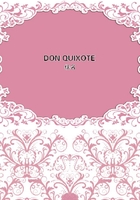
第331章
"for hunting is more suitable and requisite for kings and princes than for anybody else. The chase is the emblem of war; it has stratagems, wiles, and crafty devices for overcoming the enemy in safety; in it extreme cold and intolerable heat have to be borne, indolence and sleep are despised, the bodily powers are invigorated, the limbs of him who engages in it are made supple, and, in a word, it is a pursuit which may be followed without injury to anyone and with enjoyment to many; and the best of it is, it is not for everybody, as field-sports of other sorts are, except hawking, which also is only for kings and great lords. Reconsider your opinion therefore, Sancho, and when you are governor take to hunting, and you will find the good of it."
"Nay," said Sancho, "the good governor should have a broken leg and keep at home;" it would be a nice thing if, after people had been at the trouble of coming to look for him on business, the governor were to be away in the forest enjoying himself; the government would go on badly in that fashion. By my faith, senor, hunting and amusements are more fit for idlers than for governors; what I intend to amuse myself with is playing all fours at Eastertime, and bowls on Sundays and holidays; for these huntings don't suit my condition or agree with my conscience."
"God grant it may turn out so," said the duke; "because it's a long step from saying to doing."
"Be that as it may," said Sancho, "'pledges don't distress a good payer,' and 'he whom God helps does better than he who gets up early,' and 'it's the tripes that carry the feet and not the feet the tripes;'
I mean to say that if God gives me help and I do my duty honestly, no doubt I'll govern better than a gerfalcon. Nay, let them only put a finger in my mouth, and they'll see whether I can bite or not."
"The curse of God and all his saints upon thee, thou accursed Sancho!" exclaimed Don Quixote; "when will the day come- as I have often said to thee- when I shall hear thee make one single coherent, rational remark without proverbs? Pray, your highnesses, leave this fool alone, for he will grind your souls between, not to say two, but two thousand proverbs, dragged in as much in season, and as much to the purpose as- may God grant as much health to him, or to me if I want to listen to them!"
"Sancho Panza's proverbs," said the duchess, "though more in number than the Greek Commander's, are not therefore less to be esteemed for the conciseness of the maxims. For my own part, I can say they give me more pleasure than others that may be better brought in and more seasonably introduced."
In pleasant conversation of this sort they passed out of the tent into the wood, and the day was spent in visiting some of the posts and hiding-places, and then night closed in, not, however, as brilliantly or tranquilly as might have been expected at the season, for it was then midsummer; but bringing with it a kind of haze that greatly aided the project of the duke and duchess; and thus, as night began to fall, and a little after twilight set in, suddenly the whole wood on all four sides seemed to be on fire, and shortly after, here, there, on all sides, a vast number of trumpets and other military instruments were heard, as if several troops of cavalry were passing through the wood. The blaze of the fire and the noise of the warlike instruments almost blinded the eyes and deafened the ears of those that stood by, and indeed of all who were in the wood.
Then there were heard repeated lelilies after the fashion of the Moors when they rush to battle; trumpets and clarions brayed, drums beat, fifes played, so unceasingly and so fast that he could not have had any senses who did not lose them with the confused din of so many instruments. The duke was astounded, the duchess amazed, Don Quixote wondering, Sancho Panza trembling, and indeed, even they who were aware of the cause were frightened. In their fear, silence fell upon them, and a postillion, in the guise of a demon, passed in front of them, blowing, in lieu of a bugle, a huge hollow horn that gave out a horrible hoarse note.
"Ho there! brother courier," cried the duke, "who are you? Where are you going? What troops are these that seem to be passing through the wood?"
To which the courier replied in a harsh, discordant voice, "I am the devil; I am in search of Don Quixote of La Mancha; those who are coming this way are six troops of enchanters, who are bringing on a triumphal car the peerless Dulcinea del Toboso; she comes under enchantment, together with the gallant Frenchman Montesinos, to give instructions to Don Quixote as to how, she the said lady, may be disenchanted."
"If you were the devil, as you say and as your appearance indicates," said the duke, "you would have known the said knight Don Quixote of La Mancha, for you have him here before you."